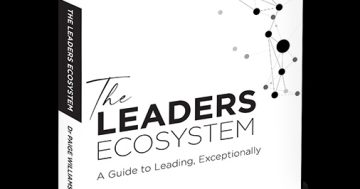Brian de Haaff* says that the uncertainty of the times means leaders should struggle even harder to provide certainty within the organisations they control.
 We are living in uncertain times.
We are living in uncertain times.
You could say this has always been true — life is unpredictable and so are we.
People are complex, and as much as technology has brought us closer together, it has also drawn in stark contrast all the ways that we are different.
Social media, in particular, has been used to amplify those differences.
There is confusion and chaos, conflict and turmoil.
It can be hard to project calm strength when uncertainty rules the day.
But here is the thing — it is imperative that managers balance uncertainty with certainty, without losing themselves in the process.
Certainty means nearly always having the answers to tough questions and answering those challenges with confidence.
Uncertainty is when the answers are not immediately clear or when you make a decision but are tortured by self-doubt and second-guessing.
I believe there is a direct relationship between success and uncertainty.
Ironically, the more successful you are, the more uncertainty surrounds you.
This is because, as your career grows, everything else does too — more team members, clients and opportunities.
I am fortunate that I do not suffer from too much self-doubt and second-guessing.
It is just my nature and it helps me as a company builder and chief executive.
However, it also does occasionally lead to blind-spots that require self-awareness.
I know many executives who constantly question their own judgment and are tormented by this paradox.
I even know some who have had to leave their jobs because of it.
Most executives feel they need to project that everything is under control, even when nothing feels certain.
This is compounded by the fact most people want leaders to show strength, especially in challenging times.
The Edelman Trust Barometer tracks sentiment from 33,000 respondents across industries.
This year’s results show that now, more than ever, employees look to their employer to be a trustworthy source of information about contentious societal issues.
The desire for stoicism and confidence in the face of disturbance is nothing new.
We all crave stability — even more when there seems to be precious little in sight.
However, as a leader, how do you find balance for yourself?
How do you avoid teetering too far in one direction or the other?
Here is how I have seen the best executives balance uncertainty with certainty and maintain their physical and emotional wellbeing.
Admit there is uncertainty:
If there was no uncertainty, there would not be an opportunity for you to achieve success within your organisation.
Draw strength from your vision:
Focusing on one core idea helps ground you and makes it easy to see why you are willing to grapple with uncertainty in the first place.
Let your vision bring you back to centre when you get unsettled.
It is a reminder that you are working for something bigger than yourself and the status quo.
Focus on your goals:
Leaders are typically drawn to problems and problems are drawn to leaders.
Not every problem in the organisation requires a solution, especially not from you.
Having clear goals allows you to avoid internalising difficulties that are not yours to untangle — ones that are unrelated to reaching your objectives.
Engage in the alternative:
If the questioning drowns out even your vision and goals, then engage the alternative.
Would you be better off in a different role with no uncertainty? Would you be happy?
Note that I said to engage — stare deeply at it for at least a week. Then, stop looking.
Honour your privilege:
Why stare? Because it will remind you of your good fortune.
You are a leader and it is a great honour and a privilege to be in your position.
With the right team and resources, you can improve people’s lives and change how organisations operate.
Be grateful for the privilege to do so.
I wrote earlier that I do not suffer from too much self-doubt, but I do ponder and wrestle with hard questions daily.
I find these paradoxes fascinating, and I enjoy trying to puzzle out the intricacies of the everyday dissonance that I face as a leader.
When I do encounter a problem that truly needs solving, it sparks my interest.
I know I am not alone in this — it is a trait most leaders share.
*Brian de Haaff is the Chief Executive of cloud-based software company Aha! He can be contacted on Twitter@bdehaaff.
This article first appeared on the Aha! company website.











